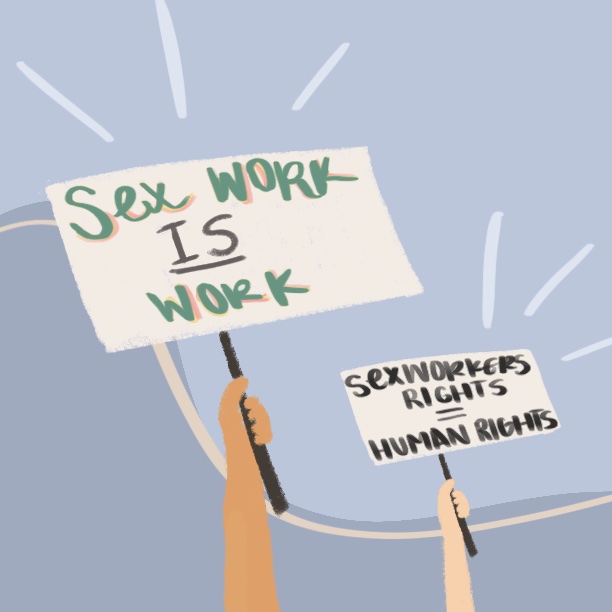Change the narrative of sex work
February 14, 2023
In an economy where college is not the only path to financial success, people have started opening up about their unconventional methods of making money. One of those methods is sex work, or prostitution. Sex work can be identified as the “negotiation and performance of sexual services for remuneration.” Many influencers have taken the stereotype of sex work and turned it from degrading to empowering, by explaining how sex work gives them control over what happens to their bodies. Unfortunately, prohibition laws make it so prostitution is illegal and can result in a large fine or jail time.
The American Civil Liberties Union says the criminalization of sex work prevents workers from accessing health care services, feeds an out-of-control mass incarceration system and further marginalizes some of society’s most vulnerable groups. In addition, this encourages violence against sex workers and makes them less likely to report said violence. While this may seem like a minor issue, it is actually quite large because the criminalization of sex work increases vulnerability to exploitation and health risks.
The criminalization of prostitution should be considered a social justice issue because it targets marginalized women, and the LGBTQ+ community that is already facing constant discrimination. Psychology Today explains how “the nature of the sex work industry is largely covert and stigmatized. Criminalization policies broadly aim to reduce the perceived individual and societal harms of prostitution by introducing laws and regulations explicitly targeting those engaged in prostitution.” The point being made is that the criminalization of sex work and prostitution is unjust. There should be policies in place to ensure the safety of sex workers, which is why decriminalizing is the best policy for the sex work community and their well-being.
The decriminalization of sex work means removing criminal penalties for the buying and selling of sexual acts, specifically those related to prostitution. This would give sex workers more legal protection and reduce their fear of unprotected violence. Sex workers deserve the same rights as any conventional employee; it is unfair to discriminate against anyone based on their line of work.













